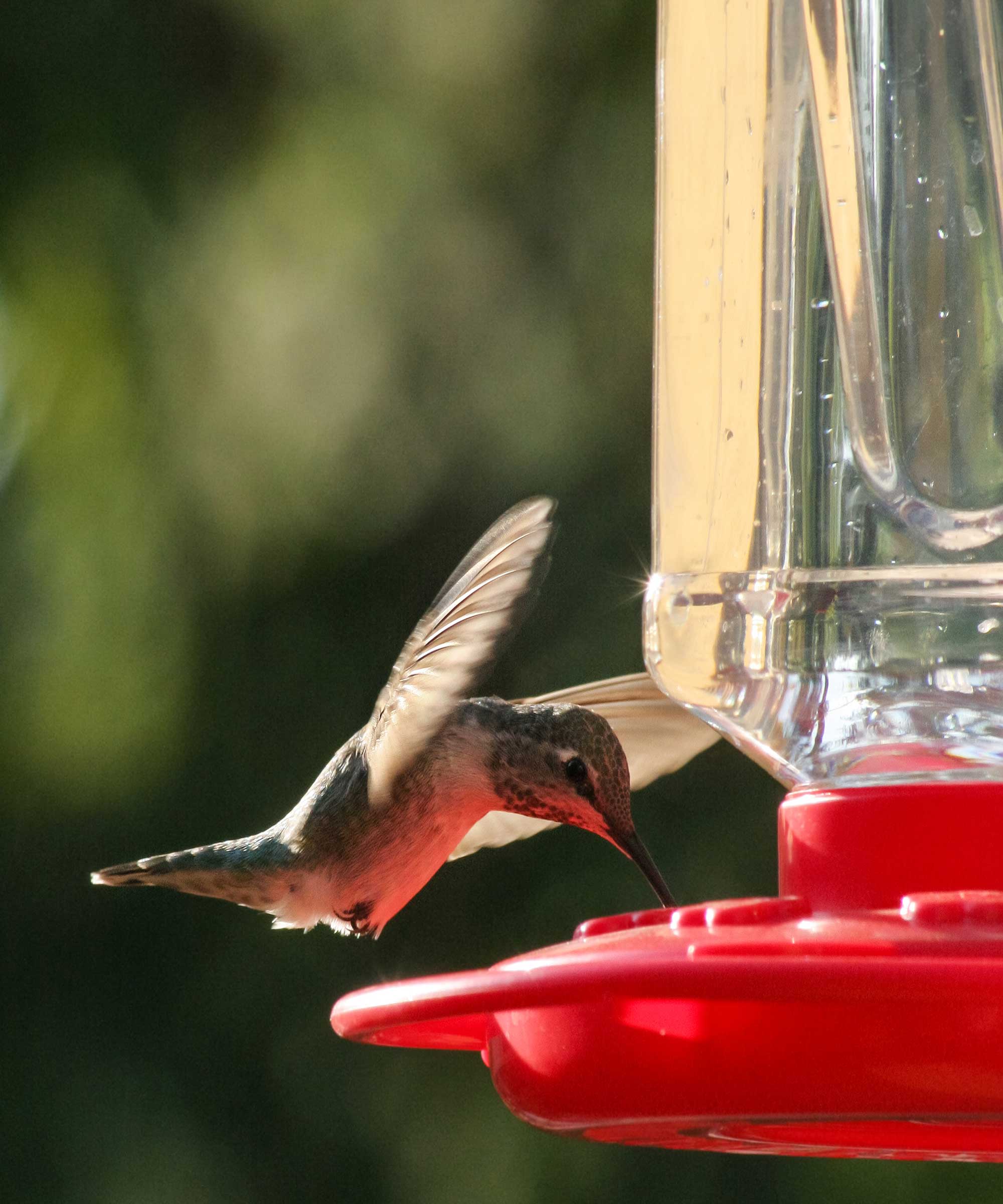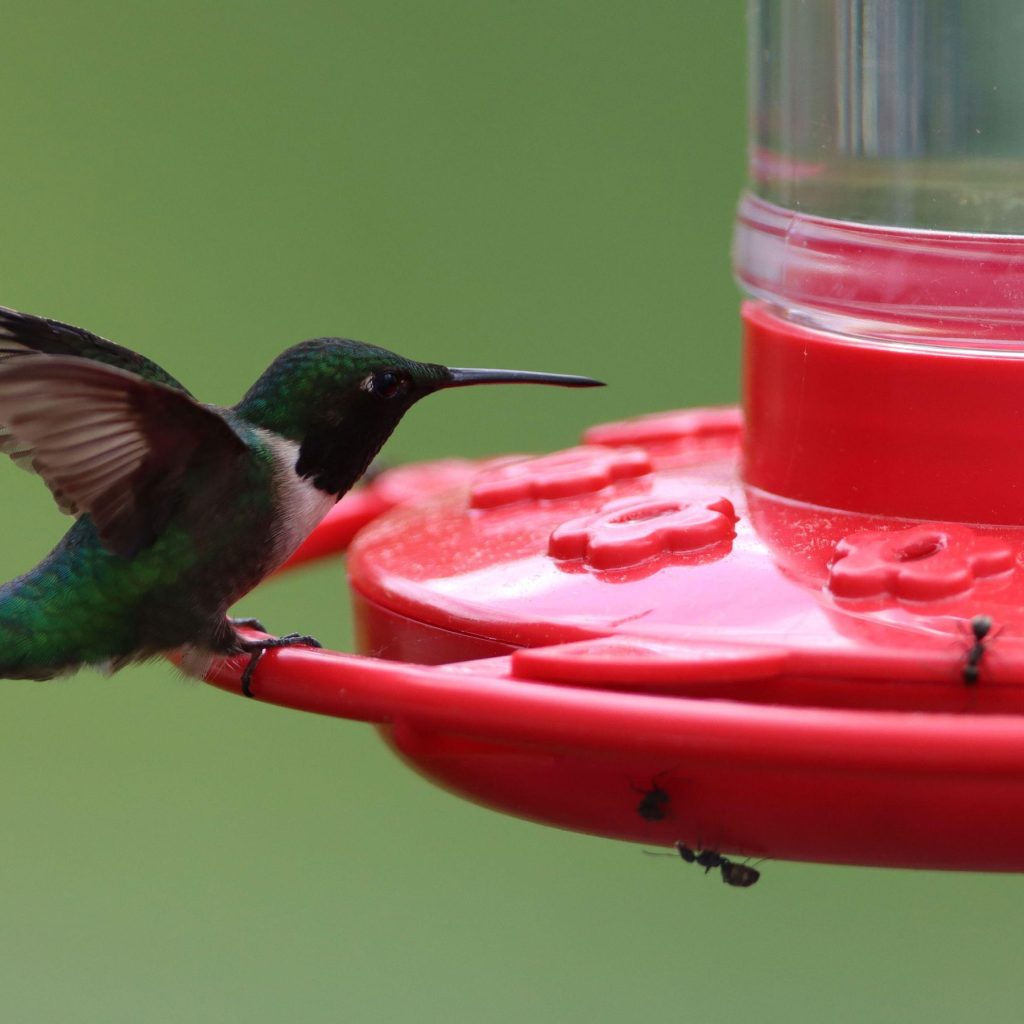Have you ever seen a tiny hummingbird struggling and wished you could help? These delicate creatures move so fast, yet they can face real danger when they’re hurt or exhausted.
Knowing how to save a hummingbird can make a huge difference—and you don’t need to be an expert to do it. You’ll discover simple, effective steps to protect and care for these amazing little birds. Keep reading, because your quick actions could be the reason a hummingbird gets a second chance to fly.
Recognize Signs Of Distress
Hummingbirdscan show many signs when they are in trouble. Look for slow or weak movements, as they usually fly very fast. If a hummingbird is fluffed upor sitting still for a long time, it may be sick or tired.
Other signs include closed eyes during the dayand difficulty breathing. Sometimes their wings droop or they seem disoriented.
- Resting on the ground or a low branch
- Visible injuries or bleeding
- Weak or no response to nearby movement
- Shivering or trembling
Intervene only if the bird is in clear danger or cannot move. Gently place it in a safe, warm spot. Avoid touching the bird too much. Contact a local wildlife expert if possible.

Credit: www.facebook.com
Create A Safe Environment
Providing a safe homehelps hummingbirds rest and stay protected. Use small birdhousesmade of natural materials. Place them in shady spots to avoid heat. Keep feeders clean and fill them with fresh nectar. Avoid using pesticides near the area.
Predators like cats and larger birds can harm hummingbirds. Place feeders and houses high and away from trees where predators hide. Keep windows visible with decals to prevent bird collisions. Remove dangerous plants with thorns or sticky sap. Avoid placing feeders near busy roads or noisy spots.
Provide Proper Nutrition
Hummingbirds need fresh nectarfor energy. Use a mixture of 4 parts waterto 1 part white sugar. Boil the water first to remove impurities, then cool it before feeding. Avoid using honey or artificial sweeteners as they can harm birds.
Provide clean waterfor drinking and bathing. Change nectar every 2-3 daysto prevent mold and bacteria growth.
- Place feeders in shady spots to keep nectar fresh longer.
- Use feeders with red partsto attract hummingbirds.
- Keep feeders clean by washing weekly with hot water.
Offer food gently. Avoid filling feeders too full to prevent spills. Observe birds feeding to ensure they are safe and not stressed.

Credit: www.homesandgardens.com
Handle With Care
Gentle handsare important for a hummingbird. Their bodies are very delicate. Use soft gloves or bare hands to hold them. Make sure your grip is firm but gentle. Too tight can hurt them. Too loose and they might escape. Always support their wings. This prevents injury.
Minimizing Stressis crucial for a hummingbird’s health. Keep the area quiet. Avoid loud noises and sudden movements. Talk softlyto the bird. This helps it stay calm. Make the room dim. Bright lights can scare them. Offer sugar water if needed. This provides energy. Stay patient and kind.
Seek Professional Help
Hummingbirds may need expert help if they are injured or very weak. Contact wildlife experts when you see signs like broken wings, no movement, or unable to fly. These pros know how to care for small birds safely.
Some common reasons to call experts:
- Bird is caught in a net or sticky substance
- Severe wounds or bleeding
- Found in a place unsafe for the bird
- Signs of illness or extreme weakness
Resources for help include:
| Resource | Contact Info | What They Do |
|---|---|---|
| Local Wildlife Rehab Center | Phone or website | Care and rehab for injured birds |
| Animal Control | Emergency line | Rescue and transport animals |
| Bird Rescue Organizations | Online contact form | Specialized in bird care |

Credit: hucklebeefarms.com
Frequently Asked Questions
How Can I Help A Hummingbird In Distress?
Offer fresh water and sugar solution to boost energy. Keep it safe from predators.
What Are Signs A Hummingbird Needs Immediate Help?
Look for weakness, inability to fly, or injury. These signs need urgent care.
Which Foods Are Safe To Feed Injured Hummingbirds?
Use a mix of four parts water to one part white sugar only. Avoid honey or artificial sweeteners.
Conclusion
Saving a hummingbird takes care and patience. Offer fresh water and safe shelter nearby. Avoid using harmful chemicals in your garden. Watch them gently drink from feeders you provide. Small actions can help these tiny birds thrive. Every effort counts in protecting their fragile lives.
Keep learning and share tips with friends. Together, we can keep hummingbirds happy and safe.
